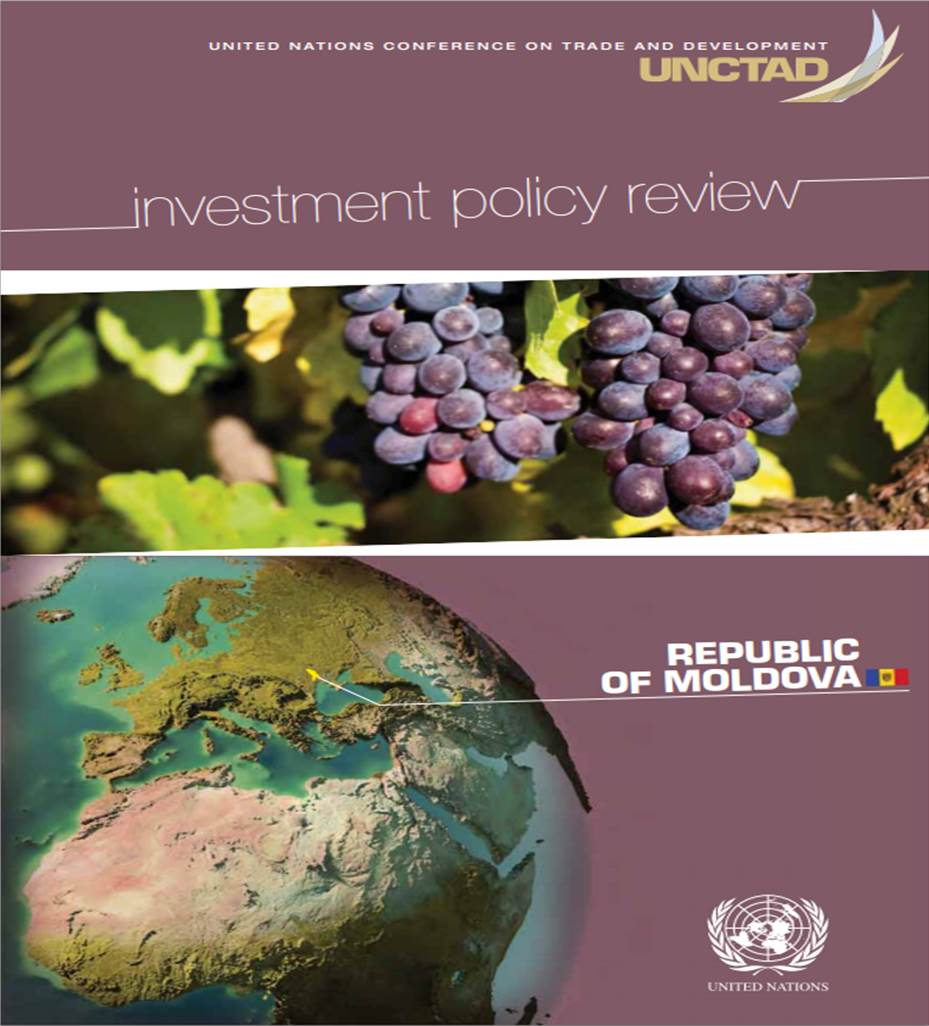Investment Policy Review of the Republic of Moldova
In the 1990s, the Republic of Moldova experienced one of the largest and longest-lasting losses of productive capacities among transition economies. An economic recovery started in the early 2000s and continued throughout the decade, largely fuelled by migrants' remittances and an expanding services sector. To create the bases for sustainable development, the Government aims at promoting export-oriented production and at better exploiting the country's potential as a natural transit point between East and West. For this to happen, a large injection of investment is required in the country's infrastructure and human capital, which goes beyond local financing capacity. Thus far, FDI has played a minor role as, outside of privatization, it has been limited to small and medium-sized projects. The Government is keen to attract more FDI to transform the economy into an export platform and regional logistics hub. In this regard, this IPR proposes an investment strategy with general and specific measures to improve the investment environment and to derive more developmental benefits from FDI.
The regulatory framework for investment is conducive to business and generally follows international practices. Most laws comply with EU standards and institutions required for regulating and administering business in a modern market economy have been set up. Nevertheless, the country does not yet distance itself from its competitors with regard to ease of doing business, public administration and regulations.
The comprehensive investment strategy proposed by the IPR consists of five main elements:
- Making FDI a policy priority for sustainable development: reaching a broad political consensus on national development priorities and FDI promotion efforts. Recognizing the imperative of international competition and creating mechanisms to assess the impact of FDI policy.
- Enhancing human resources and physical infrastructure through and for better FDI: attracting FDI in higher education, encouraging collaborative arrangements with foreign institutions and enhancing cooperation between vocational schools, universities and the private sector. In infrastructure, building on the progress of the PPP law and preparing a pipeline of pilot projects.
- Achieving excellence in regulating and administering investment for sustainable development: completing regulatory reforms in access to land, construction permits and taxation. Ensuring effective implementation of existing legislation.
- Increasing the effectiveness of investment promotion for increased FDI benefits: fostering coordination among government institutions and adopting international best practices in investment promotion.
Tapping into the country's FDI potential in selected areas: addressing sectorial issues in priority export-oriented industries, strengthening SMEs and transforming free economic zones into multi-facility zones.
















